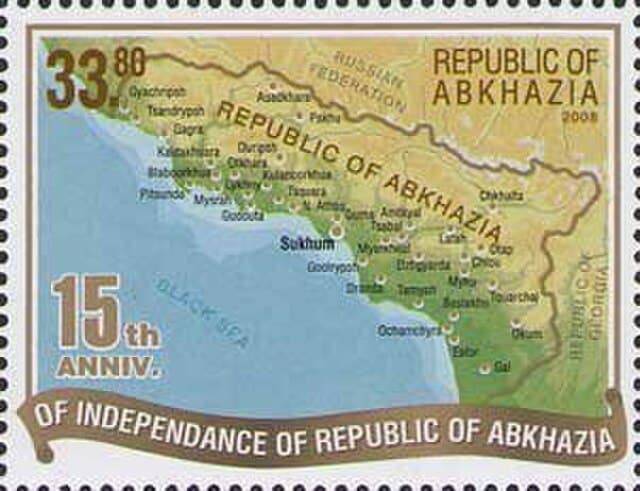Photo: 2008 stamp of Abkhazia – Wikimedia Commons
You would think Russia has its hand full on their all-out war in Ukraine that has been going on for over one and a half years now. However, Ukraine is not the only victim of Russian expansionism at the moment. Recently, the breakaway region of Abkhazia, internationally recognised as part of Georgia, has become Russia’s focus of regional powerplay. Russia is planning a permanent naval base in Ochamchira, Abkhazia. Where does this particular desire come from and what is there to understand about Russia’s relation with Georgia, and Abkhazia in particular?
The history of Abkhazia
For most of the Soviet time, Abkhazia was an Autonomous Soviet Socialist Republic, within the Soviet Socialist Republic of Georgia. Ethnically, culturally and linguistically the Abkhaz are different from Georgians. The turmoil following the collapse of the Soviet Union brought the status of Abkhazia into discussion. The Abkhaz were afraid an independent Georgia would eradicate their culture and language and their longing of more autonomy escalated into the Georgian-Abkhaz conflict in 1992. Russian backed separatists fought against the Georgian army. Hundreds of thousands ethnic Georgians were expulsed and the region broke away. Russia – as one of the only countries in the world – recognises Abkhazia and South Ossetia, another breakaway region within the internationally recognised borders of Georgia, as independent states since 2008. In that year, Russia and Georgia waged a war over the two regions. The outcome was a de facto annexation of the two regions by Russia. Since then, it has built military bases in both regions and Georgia perceives the two regions, accounting for over 20 per cent of its territory, as occupied by Russia. The conflicts concerning Abkhazia have been unresolved ever since.
Diversification of military presence
Due to occasional Ukrainian attacks on Russia’s main naval base in Sevastopol, Crimea, Russia has withdrawn a large amount of its Black Sea Fleet. Seeking an alternative for Sevastopol, Russia is now intensifying its efforts for a base at Ochamchira. There used to be a naval base there, in times of the Soviet Union. Already in 2009, Russia put forward its wish, creating concern in the West. Now the plans are getting more concrete with Russia signing a deal for a permanent naval base with Aslan Bzhania, the leader of Abkhazia. Russian-backed Abkhazia is open to military cooperation with Russia as this provides them with more military power and at the same time security towards Georgia. Georgia says the move is a “gross violation of its sovereignty and territorial integrity”.
Russia-Georgia relations
The relationship between Russia and Georgia has been antagonistic since Georgia set a pro-Western course following the Rose Revolution in 2003. Russia has threatened to annex the two regions officially, accusing NATO of enlarging tensions by bringing up potential membership of Georgia. Counterintuitively, the troubled relationship has been more stable lately, taking into account Russia’s invasion of Ukraine. Georgia has not joined sanctions on Russia and as a response, Russia has banned the twenty-year old visa requirements for Georgian nationals. The stable ties could be explained by Georgia’s growing regional importance. Georgia acts as an alternative corridor for the EU towards Central Asia and China. Meanwhile, now that Russia is focussed on Ukraine, its influence in the South Caucasus is diminishing, while Georgia has become an important axis in bypassing sanctions. Now Georgia has more to offer, increasing its leverage, could provide a new window of opportunity for reconciliation between Abkhazia and Georgia. Russia should have an interest in this too, as an open and stable border with Georgia can save Russia from international exclusion.
Russian irredentism
Putin has stated multiple times that the collapse of the Soviet Union was the ‘worst geopolitical catastrophe’ of the 20th century. Millions of Russians were suddenly living in newly independent countries. Apparently, Putin has made it its life’s work to reclaim Soviet territory and reunite all Russians in a Greater Russia. This objective is called irredentism – the act of a state seeking to incorporate territories from other countries into its own, either due to historical claims or the presence of people sharing the same language and ethnicity. Putin’s foreign policy has been expansionist, to say the least. Under the guise of protecting ethnic Russians, Moscow is actively expanding its sphere of influence with notorious policies in their “near-abroad”. For example, giving out Russian passports to people in northern Kazakhstan, south-eastern Ukraine and other regions where large numbers of ethnic Russians live.
Russia has interest in creating unrest in its “near-abroad” by fuelling secessionism, to keep the neighbouring countries’ power in check, and increase their political dependence on Moscow. Russia’s annexation of Crimea and parts of south-eastern Ukraine are prime examples of Russian irredentism. Although the role of Moscow has severely come under strain in its neighbouring countries, the Russian regime still tries to increase its military presence besides Ukraine, in Abkhazia for example. This should be followed closely and Georgia deserves all the support it needs from Western actors to protect and sustain its sovereignty.
Written by Timon Driessen



